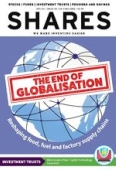Archived article
Please note that tax, investment, pension and ISA rules can change and the information and any views contained in this article may now be inaccurate.
Emerging markets: Views from the experts

1. Chinese policymakers signalled an easing of their year-long crackdown on the information technology sector in May 2022. This has raised expectation that the record penalties and constraints on doing business in the sector are moving into the rear-view mirror. An example of the policy changes included the People’s Bank of China’s announcement of a return to ‘normalised supervision’ with respect to the technology sector’s financial activities. In addition, premier Li Keqiang also signalled stronger support for the standardised and healthy development of the platform economy. Although uncertainties remain, the easing of the crackdown on the information technology sector is a positive development for investors.
2. While China continues to pursue its ‘dynamic zero’ Covid policy, it is adapting how it lives with the virus. Cities are transitioning to a policy of requiring a negative test within 72 hours to access public spaces, including transport, offices and shopping centres. The challenge for businesses is how to encourage consumers out of their apartments and into the shops given the new requirements, which some view as cumbersome. One winner could be the platform economy as consumers opt to purchase even more goods and services online.
3. Elevated commodity prices have positively impacted emerging markets including Brazil, which is a net commodity exporter. However, the dark side of resource nationalism is starting to emerge, with markets including India, Malaysia and Indonesia implementing bans on the export of grain and other agricultural commodities. Designed to control domestic inflation by increasing supply, this can have the opposite effect as producers reduce production driven by a margin squeeze created by rising input costs and falling revenue due to excess domestic supply. Other emerging markets are trying to find ways to address looming global food price increases through a range of measures aimed at reducing inflationary pressures, including the release of Ukrainian grain trapped in storage and lowering fertiliser costs.
Important information:
These articles are provided by Shares magazine which is published by AJ Bell Media, a part of AJ Bell. Shares is not written by AJ Bell.
Shares is provided for your general information and use and is not a personal recommendation to invest. It is not intended to be relied upon by you in making or not making any investment decisions. The investments referred to in these articles will not be suitable for all investors. If in doubt please seek appropriate independent financial advice.
Investors acting on the information in these articles do so at their own risk and AJ Bell Media and its staff do not accept liability for losses suffered by investors as a result of their investment decisions.
Issue contents
Feature
Great Ideas
Investment Trusts
News
- Apple aims to arrest sagging share price as new product launch rumours swirl
- Investment trusts prove to be key sources of dividends
- The earnings downgrade cycle has only just begun, suggesting more pain ahead
- Copper has entered a bear market and history tells us it’s not a good sign
- Why stock markets are taking Russia's debt default in their stride

 magazine
magazine









